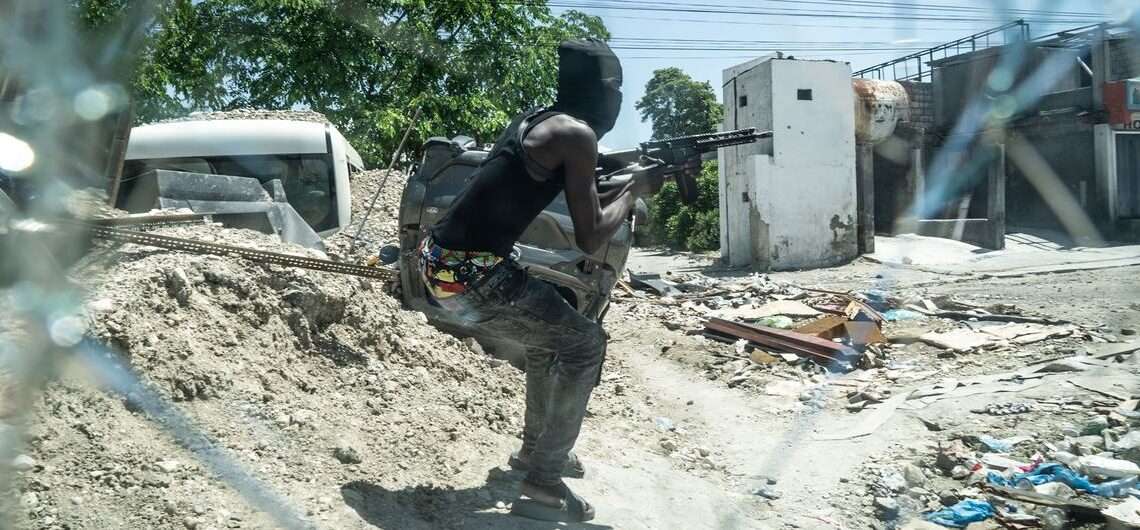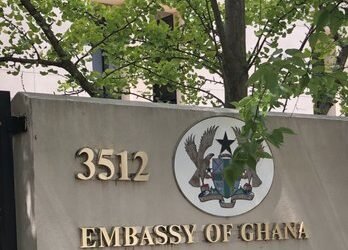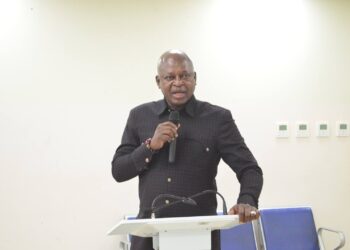Over 20,000 people have fled their homes in Port-au-Prince in just four days, driven by a surge in gang violence that has engulfed the Haitian capital.
According to the International Organization for Migration (IOM), over 17,000 of these individuals have found temporary refuge at 15 displacement sites, as the city faces a breakdown of critical supply chains.
The scale of the current displacement, the largest since August 2023, reflects the growing power of armed gangs that have joined forces to tighten their control over Port-au-Prince. The overwhelmed and underequipped national police have been unable to rein in the violence.
Last week’s attack on a commercial aircraft marked a turning point, adding to the city’s sense of crisis. A U.S.-based Spirit Airlines jet was reportedly hit by gunfire as it attempted to land, injuring a flight attendant.
This incident prompted the U.S. Federal Aviation Administration to ban flights to Haiti for at least 30 days. With international flights grounded, Port-au-Prince has become increasingly isolated.
“The isolation of Port-au-Prince is amplifying an already dire humanitarian situation,” said Grégoire Goodstein, IOM’s Chief in Haiti. “With only 20 percent of Port-au-Prince accessible, humanitarian workers face immense challenges in reaching affected populations,” he added.
Gang-controlled roads and restricted access to the main seaport have further choked the flow of essential supplies into the capital, threatening the well-being of an already vulnerable population.
Gang Violence Spirals Out of Control
Armed groups have relentlessly expanded their reach, taking control of more neighborhoods and severing ties between communities. The Haitian national police, operating with limited resources, struggle to contain the ever-worsening violence.
The toll has been staggering. The UN Human Rights Office (UNHCR) reported that nearly 4,000 gang-related deaths have occurred in 2024 alone. Gender-based violence has also surged, with women and children disproportionately affected by the chaos.
According to reports, 94 percent of displaced women and girls are now at heightened risk of violence, including sexual violence used as a weapon of terror.

Humanitarian Aid Faces Hurdles
Despite the formidable access constraints, IOM is making efforts to deliver essential aid. Services include mobile medical clinics, rental assistance for displaced individuals, psychological support, and the provision of water at displacement sites. The organization is also sustaining operations at border crossings and running community stabilization projects.
IOM has urged all parties to respect humanitarian principles and allow unimpeded access to those in need. “It is crucial to uphold the neutrality and impartiality of aid operations,” the agency noted, emphasizing the need to protect the integrity of humanitarian assistance.
Funding Shortfalls and Calls for Support
As the crisis deepens, funding remains a critical issue. The UN’s humanitarian response plan, valued at $674 million, is only 42 percent funded. Without additional financial backing, aid agencies fear the situation will deteriorate further.
“Without immediate international support, the suffering will worsen exponentially,” warned Goodstein.
Port-au-Prince’s plight underscores the urgent need for international intervention and sustained humanitarian support as the city faces an unprecedented humanitarian catastrophe.
READ ALSO: Alan Criticizes Former President Kufuor Over Endorsement of Bawumia




















